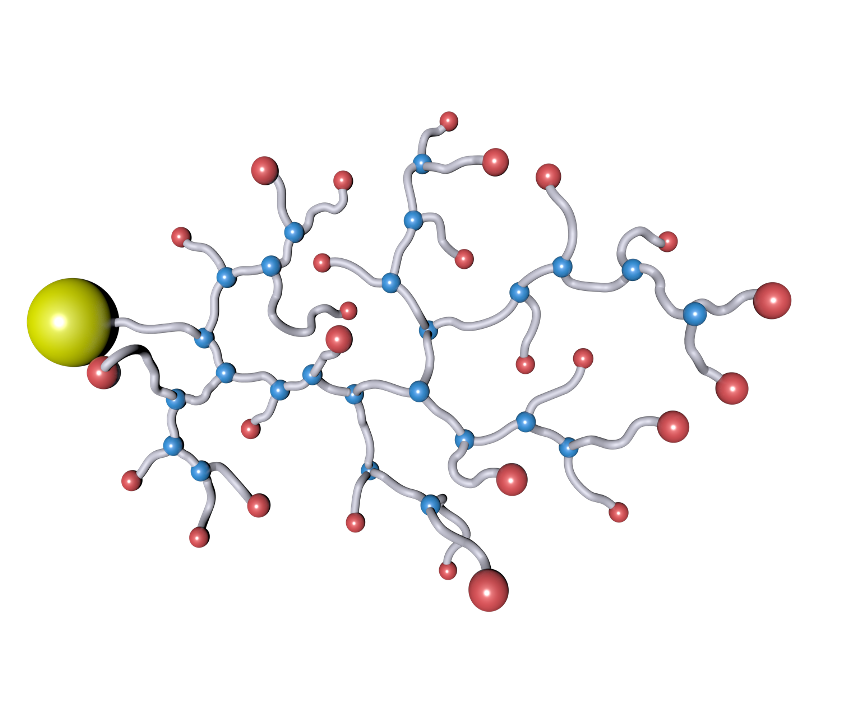Checking Out the Varied Applications and Benefits of Polymers in Different Industries
Polymers, with their varied series of residential or commercial properties and performances, have ended up being indispensable in different sectors, each gaining unique gain from their application. Polymers. From enhancing security and performance in the vehicle field to reinventing medical devices in the healthcare sector, polymers play a crucial duty. Their eco-friendly nature is altering the landscape of sustainability techniques. As we look into the depths of polymers in electronics, we reveal innovative developments, while their structural honesty changes the realm of construction and framework. The pervasive influence of polymers throughout markets is a testament to their versatility and flexibility, forming the future of numerous industries.
Automotive Market Applications
Polymers play a crucial role in improving the efficiency and resilience of different components within the automobile field. One prominent use of polymers in the auto industry is in the production of light-weight parts.

Healthcare Sector Benefits
In various health care applications, the advantages of utilizing polymers are commonly identified for their diverse variety of beneficial residential or commercial properties. Polymers play a critical role in the healthcare sector because of their versatility, biocompatibility, and cost-effectiveness. One of the main benefits of polymers in health care is their capability to be customized to specific demands, such as versatility, longevity, and biodegradability, making them ideal for a variety of clinical applications.
Polymer-based products are extensively used in medical tools, such as catheters, implants, prosthetics, and medicine shipment systems, because of their biocompatibility and ability to mimic all-natural cells. These products can decrease the danger of allergies or rejections, enhancing individual safety and security and outcomes. Furthermore, polymers are lightweight, making them suitable for wearable medical devices and making sure individual comfort.
Additionally, polymers enable the development of innovative therapy approaches, such as hydrogels for cells engineering and nanocomposites for targeted drug shipment. Their ease of handling and sanitation makes them crucial for preserving high standards of health in health care settings. Overall, the varied advantages of polymers add considerably to innovations in clinical modern technology and individual treatment.
Ecological Advantages of Polymers

Moreover, polymers can add to energy cost savings as a result of their lightweight nature. In markets such as transport, light-weight polymer materials can help in reducing gas intake and greenhouse gas discharges. Furthermore, polymers can make it possible for the growth of energy-efficient products such as insulation materials that enhance energy preservation in structures.
Additionally, polymers play an essential function in minimizing water air pollution. For instance, using polymer-based filtration systems can blog here efficiently eliminate contaminants and pollutants from wastewater, securing water sources and ecological communities. Overall, the environmental benefits of polymers make them important possessions in advertising sustainability and environmentally friendly methods across various industries.
Polymers in Electronic Devices and Technology
Considering the enhancing need for cutting-edge and sustainable solutions in modern-day sectors, the combination of advanced polymer modern technologies in the realm of electronics and modern technology has emerged as a crucial method for driving efficiency and efficiency. Polymers have revolutionized the electronic devices market by enabling the manufacturing of lighter, much more flexible, and sturdy electronic devices. From smartphones to clinical gadgets, polymers play a vital function in enhancing product style and functionality.
One substantial benefit of polymers in electronic devices is their insulating buildings, which assist safeguard delicate digital elements from environmental variables and electric interference. Furthermore, polymers are vital in the growth of flexible display screens, wearable technology, and printed electronic devices, offering unlimited opportunities for developing smart and interconnected gadgets.
In addition, the use of polymers in electronic product packaging has actually led to improvements in miniaturization and thermal monitoring, improving the general efficiency and reliability of electronic systems. As innovation remains to evolve, the adaptability and flexibility of polymers will unquestionably drive further advancement in the electronic devices sector, shaping the future of modern my site technology.
Role of Polymers in Building And Construction and Framework
Polymers provide numerous benefits in the building and construction market due to their flexibility, toughness, and cost-effectiveness. One essential role of polymers in building and construction is their usage in finishings and sealants, giving security against ecological aspects such as wetness, UV radiation, and deterioration.
In addition, polymers play a critical function in sustainable building practices by making it possible for the advancement of energy-efficient structures. Shielding materials made from polymers aid control indoor temperature levels, minimizing the need for heating and cooling down systems and eventually decreasing power intake. The usage of polymer-based composites in facilities projects such as bridges and roads boosts their longevity and minimizes upkeep expenses. On the whole, the consolidation of polymers in building and construction and infrastructure displays their significant effect on modern-day design methods.
Verdict
In conclusion, polymers play a critical role in different sectors such as automotive, healthcare, environmental, electronic devices, and building. Their flexible residential or commercial properties make them important in producing ingenious options and items. From enhancing gas effectiveness in automobiles to improving Visit This Link clinical tools, polymers supply countless benefits. In addition, their influence on lowering waste and advertising sustainability highlights their relevance in modern-day applications. The prevalent usage of polymers shows their substantial payment to progressing modern technology and boosting lifestyle.